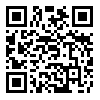Volume 3, Issue 2 (7-2020)
Iranian Journal of Educational Sociology 2020, 3(2): 1-10 |
Back to browse issues page
Download citation:
BibTeX | RIS | EndNote | Medlars | ProCite | Reference Manager | RefWorks
Send citation to:



BibTeX | RIS | EndNote | Medlars | ProCite | Reference Manager | RefWorks
Send citation to:
Malekzadeh A, Namvar H, Jomehri F. (2020). Predicting Social Skills in Single Child Adolescents based on Attachment Styles and Creativity: The Mediating Role of Moral Intelligence. Iranian Journal of Educational Sociology. 3(2), 1-10. doi:10.52547/ijes.3.2.1
URL: http://iase-idje.ir/article-1-824-en.html
URL: http://iase-idje.ir/article-1-824-en.html
1- Department of Psychology, Faculty of Humanities, Islamic Azad University, Saveh Branch, Saveh, Iran
2- Department of Psychology, Faculty of Humanities, Islamic Azad University, Saveh Branch, Saveh, Iran.
3- Department of Psychology, Faculty of Educational Sciences and Psychology, Allameh Tabataba’i University, Tehran, Iran.
2- Department of Psychology, Faculty of Humanities, Islamic Azad University, Saveh Branch, Saveh, Iran.
3- Department of Psychology, Faculty of Educational Sciences and Psychology, Allameh Tabataba’i University, Tehran, Iran.
Abstract: (13372 Views)
Purpose: The aim of this research was predicting social skills in single child adolescents based on attachment styles and creativity with mediating role of moral intelligence.
Methodology: This was a cross-sectional study from type of correlation. The research population was 3957 single child adolescent students in areas one to three of Tehran city in 2019-2020 academic years. Based on Cochran's formula, the sample size was estimated 350 people who were selected by multi-stage cluster sampling method. To collect data used from the questionnaires of social skills (Inderbitzen & Foster, 1992), attachment styles (Hazan & Shaver, 1987), creativity (Torrance, 1992) and moral intelligence (Lennick & Kiel, 2005). Data were analyzed by structural equation modeling method from type of path analysis in LISREL software version 8.8.
Findings: The findings showed that secure attachment and creativity had a direct and significant effect on moral intelligence and social skills, avoidant and ambivalent insecure attachments had a direct and significant effect on moral intelligence and social skills and moral intelligence had a direct and significant effect on social skills. Also, secure, insecure avoidant and insecure ambivalent attachments, avoidant and ambivalent insecure attachments and creativity with mediating role of moral intelligence had an indirect and significant effect on social skills (P<0.05). The model had a good fit and moral intelligence was a good mediator between attachment styles and creativity with social skills.
Conclusion: According to the results, to improve social skills can be increased the rate of secure attachment style, creativity and moral intelligence and decreased the rate of avoidant and ambivalent insecure attachment styles.
Methodology: This was a cross-sectional study from type of correlation. The research population was 3957 single child adolescent students in areas one to three of Tehran city in 2019-2020 academic years. Based on Cochran's formula, the sample size was estimated 350 people who were selected by multi-stage cluster sampling method. To collect data used from the questionnaires of social skills (Inderbitzen & Foster, 1992), attachment styles (Hazan & Shaver, 1987), creativity (Torrance, 1992) and moral intelligence (Lennick & Kiel, 2005). Data were analyzed by structural equation modeling method from type of path analysis in LISREL software version 8.8.
Findings: The findings showed that secure attachment and creativity had a direct and significant effect on moral intelligence and social skills, avoidant and ambivalent insecure attachments had a direct and significant effect on moral intelligence and social skills and moral intelligence had a direct and significant effect on social skills. Also, secure, insecure avoidant and insecure ambivalent attachments, avoidant and ambivalent insecure attachments and creativity with mediating role of moral intelligence had an indirect and significant effect on social skills (P<0.05). The model had a good fit and moral intelligence was a good mediator between attachment styles and creativity with social skills.
Conclusion: According to the results, to improve social skills can be increased the rate of secure attachment style, creativity and moral intelligence and decreased the rate of avoidant and ambivalent insecure attachment styles.
Type of Study: Research Article |
Subject:
Special
Received: 2020/08/25 | Accepted: 2020/07/22 | Published: 2020/07/22
Received: 2020/08/25 | Accepted: 2020/07/22 | Published: 2020/07/22
Send email to the article author
| Rights and permissions | |
 |
This work is licensed under a Creative Commons Attribution-NonCommercial 4.0 International License. |








.jpg)
